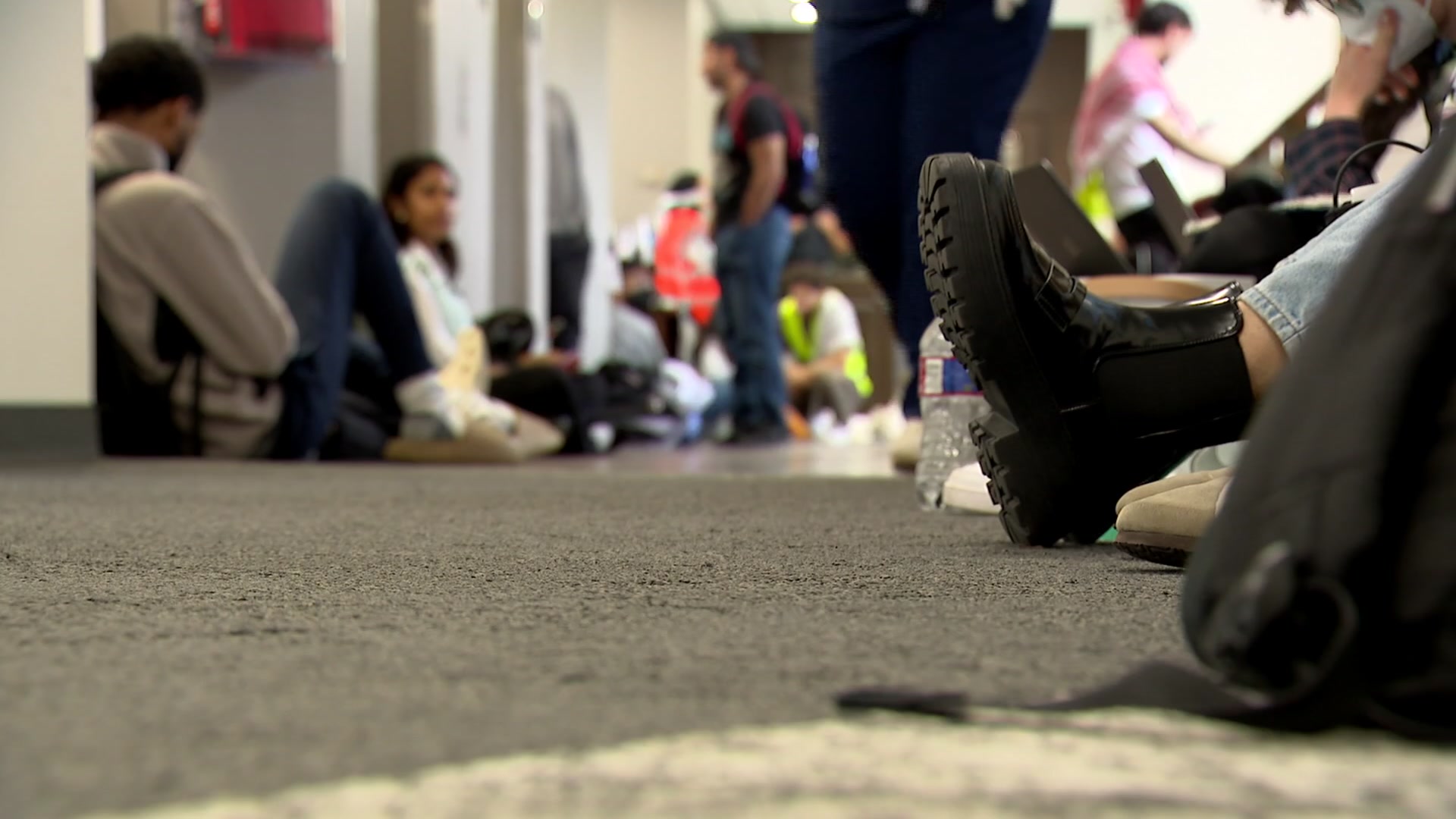The heart of a North Texas mother essentially healed itself -- with a little help from doctors -- after heart failure that would have killed most people.
Ashley Reynolds was 17 when she was diagnosed with pregnancy-related heart failure shortly after delivering her son, Raedyn.
Reynolds was put on a left ventricular assist device, or LVAD, to keep her heart working until a heart was available for transplant. While the LVAD pumped blood for Reynolds's ailing heart, something miraculous happened. Slowly, Reynolds's heart was healing itself.
Her cardiologist said new LVAD technology allowed him to slowly and safely check her heart function.
"You can literally dial down the RPMs on this LVAD and see on the ultrasound that this heart will keep on going," said Dr. Jan Kuiper, of Heart Place at Baylor Medical Center of Dallas.
Reynolds was three weeks postpartum when she noticed some troubling symptoms.
"I started getting shortness of breath and swelling," she said.
Local
The latest news from around North Texas.
Reynolds thought it could be the result of giving birth, but the symptoms kept getting worse.
"I didn't sleep for three days because when I'd lay down, I couldn't breathe," she said.
She finally went to the doctor and was referred to a nearby emergency room.
"I didn't have hardly any blood pressure at all, and my heart rate was 186 beats per minute," Reynolds said. "They did an X-ray, and I had fluid on my lungs. I was basically drowning in my own blood."
She said she was constantly in bed and vomiting. She said she couldn't take care of her son, who was 3 or 4 weeks old.
After failing several other heart treatments, she was transferred to Heart Place.
Her LVAD was removed after one year, and Reynolds's once-failing heart started beating on its own.
"I was just amazed and at a loss for words," she said. "What do you say when you're expecting a heart transplant and [you hear], 'Oh, your heart is healed?'"
It was an unlikely outcome only seen in a handful of patients.
"Three percent of these patients do get better to the point where we can take out these LVADs," Kuiper said. "The other 97 percent don't. Is that a wish from the beginning? Of course."
"But you can't anticipate who's going to be the healer and who's not," Kuiper said.
Reynolds will be on maintenance medicines for the rest of her life and has been advised against having any more biological children.
She now proudly shows the scars from her health scare. She said it taught her that she is stronger than she ever knew.
Reynolds, who is engaged to the man she says helped see her through the most difficult time of her life, celebrates Raedyn's first birthday this week.



